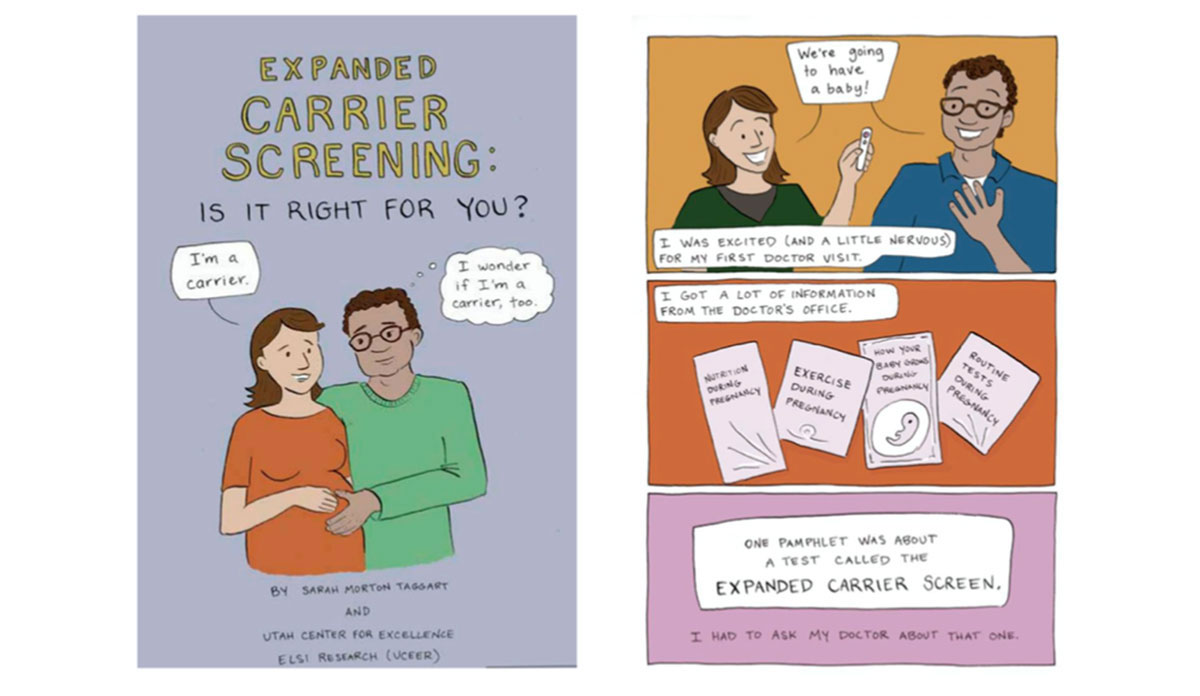Comics have inspired rollercoasters, restaurants, apparel, and movies. The box-office success of Spider-Man: No Way Home, nearly sixty years after the introduction of the hero, reinforces the fact that comics are a staple of American culture. Comics have the ability to ‘transport‘ readers into relatable storylines. Self-paced and easy to follow, comics might serve as inexpensive educational tools to improve health.
Studies show that graphic medicine (comics illustrating medical education lessons) helps students understand and retain information that can lead to improved patient care. Research has also found that the more relatable the storyline, the more effective a comic can be at educating the reader and changing their health beliefs, whether they be medical professionals or the general public. Comics are useful tools for health education. But less is known about the readers’ reactions to and preferences for graphic public health messages.
A team of researchers at the University of Utah examined attitudes and opinions on comics used to educate women about expanded carrier screening during prenatal care. Expanded carrier screening can inform people planning to have children about the likelihood of their child having any of hundreds of genetic disorders. Results from screening inform family planning options and reduce unanticipated adverse pregnancy outcomes. However, many patients and providers remain uneducated about such genetic screening. In this study, fifty-four women were split into six focus groups and introduced to expanded carrier screening through comics.
According to participants, reading habits change during pregnancy. They reported curiously diving into the literature related to birth and parenthood and the course of pregnancy. Some women sought answers to their questions on pregnancy-focused websites, while others only read the material provided during their clinical visits.
Participants reported responding more emotionally than usual to reading material during pregnancy. So much so that they reported avoiding reading information that could induce stress or anxiety. They blamed this on ‘pregnancy brain’ and stated that they had strong reactions not only to what they were reading, but also to how it related to their pregnancy.
Based on those responses alone, challenging pregnant women to engage in dry, textbook-like readings doesn’t seem to be the best route. The participants wanted to learn from material that was simple and clear. They didn’t want complex medical terminology or deep scientific explanations; comics fit the bill. The scenarios depicted the realistic frustration, fear, and financial considerations that surround expanded carrier testing.
Nobody wanted to learn from images of flawless families. The comics presented three couples. Each received different results from the expanded carrier screening and had difficult decisions to make. The participants stated that they appreciated being shown that each decision was possible and there was no correct answer.
‘I don’t think men really understand that they have a part with the pregnancy. We are carrying the baby, but they give half the genes.’
The women in the focus groups also appreciated the presence of the father in the comics. The father’s presence emphasized that pregnancy and parenthood aren’t just responsibilities for women. They are experiences to be shared. One participant stated, ‘I don’t think men really understand that they have a part with the pregnancy. We are carrying the baby, but they give half the genes.’ The comics showed scenarios where the father refused to get the expanded carrier screening, which participants noted added to the realism. They responded to the familiarity of unsupportive partners with comments such as, ‘That’s how my husband is. He would not get tested’ and ‘That’s totally my husband.’
In the end, most participants said they were interested in getting tested. However, a few participants said they felt patronized by receiving pregnancy education through comics. Most women also preferred scenarios where the baby was born disease-free, regardless of what the expanded carrier testing indicated. However, if there is a scenario where the baby is born with a disease, participants wanted the storyline to show how the family responds.
Comics are a staple of American culture. Their stories reach minds of every age, class and race every day. Maybe it’s time we trust them with more than entertainment and use them to assist in how we understand decisions about our health.
Illustration via Exploring the use of a comic for education about expanded carrier screening among a diverse group of mothers, Journal of Communication in Healthcare, 2021.














